By: M.Waliyulloh, Chairman of the Aqsa Working Group (AWG) Bureau of Lampung
On the occasion of the commemoration of the Independence Day of the Republic of Indonesia on August 17, 2022, a YouTube channel displayed the enthusiasm of the residents of Gaza and Palestine to enliven Indonesia’s independence day. They even busied themselves making sand writing with the words ‘Dirgahayu Indonesia 77 th’.
It was not enough for them to go around it on horses while carrying Indonesian and Palestinian flags. Some of them even shouted ‘Freedom’ with a mix of Arabic accents. The shout was so sincere as it was spoken with joy among the ruins of the ruined house.
The word “merdeka” (Indepence) is so heart-wrenching because of the fact that they are still in the maelstrom of massacres and trapped in the Zionist occupation, as well as thrilling because they themselves dream of an unattainable independence.
Also Read: The Forty-Four-Days of Glory: Azerbaijan’s Struggle for Justice and Peace
Big questions arise from us as introspection and empathy. Why did they bother in the joy of shouting that? Meanwhile, among us, it is still difficult to be grateful for and interpret this independence. The greatest gift that God has given to the Indonesian people. To understand this, let’s pay close attention to President Soekarno’s invitation to the commemoration speech on August 17, 1966, which was firm and straightforward in the slogan “Jasmerah” (Don’t forget history) which is never to leave history. Historian Rushdy Hoesein said many people misquoted the abbreviation “Jasmerah” from Bung Karno’s speech that “Jasmerah” stands for ‘Never Forget History’.
Whereas the truth is ‘Never Leave History’. There is a different meaning between ‘forgetting’ and ‘leaving’. Rushdy gives an example if we have a house key. Every time we leave the house, we will never leave the house key, although sometimes we may forget to bring it (Republika, 15/05/2019). Not leaving it means that the key remains with us to maintain and fill in the independence of the struggle and sacrifice as part of the process of history.
Then, what is the connection between this celebration of independence and the enthusiasm of the people of Gaza and Palestine? Are there residents of other countries in this part of the world who have the same enthusiasm as them? Is there any other country besides Indonesia that is so special in the hearts of the Palestinian people? So that every year they always consistently spread the spirit of independence for us Indonesian people.
It seems difficult to answer because of the fact that they are the only ones who are so ‘concerned’ about this independence anniversary. We will try to analyze these questions from the point of view of humanism, a universal perspective by opening the pages of history a little.
Also Read: Palestine Solidarity Month: A Collective Movement for Al-Aqsa and Palestine’s Freedom
Colonization or colonialism is a form of arrogance that straddles basic human rights. The impact only boils down to suffering. The Indonesian people experienced difficult times, suffered and were oppressed by the tyrannical and tyrannical colonialists. The suffering of the Indonesian people during the colonial period was not only the result of war and violence. Poverty, hunger, and slavery were carried out for the benefit of the colonizers.
For example, the people of Indonesia have become the monthly month of the Cultuurstelsel (Forced Cultivation) policy which exploits the power of the Indonesian people and extracts natural wealth, working hard at gunpoint. Poverty and hunger spread everywhere, the Indonesian people were enslaved by them and whoever disobeyed, the punishment was very cruel.
Not to mention the hard work on the construction of the Anyer-Panarukan highway in 1809 which claimed up to 12,000 lives. This labor is carried out at gunpoint and whipping. Many workers starved to death. That is a bit of the suffering of the Indonesian people where their dignity and rights were violated by the colonialists.
Such a situation erodes the identity of the individual as a nation. Everyone wants to sow hopes and dreams for independence. At first it was a low whisper, then it condensed into a scream of anger and resistance. The Indonesian people gathered to take up arms even with sharp bamboo.
Also Read: Hassan al-Turabi: A Controversial Thinker from Sudan
Names emerged as resistance figures by leading the war such as Diponegoro (1785-1855), Cut Nyak Dhien (1848-1908), Sudirman (1916-1950), Bung Tomo (1920-1981) and many more. Movement figures also mushroomed up against. Call it R. A. Kartini (1879-1904), KH Hasyim Asyari (1871-1947), Ki Hadjar Dewantara (1889-1959) KH Agus Salim (1884-1954), Mohammad Natsir (1908-1993), Soekarno (1901-1970) , Mohammad Hatta (1902-1980) and others.
The fruit of struggle and sacrifice of sweat and blood, wealth and life resulted in the proclamation. That day coincided with Friday 9 Ramadhan 1364 H, Bung Karno proclaimed Indonesia as an independent country.
However, the struggle did not stop there. The proclamation as an independent state requires recognition and support from other countries. Among the happiness and relief that was felt on August 17, there was hope and the question of which country could provide support.
At that time, the recognition of other countries towards the independence of Indonesia was highly anticipated and expected. Unexpectedly, it turned out that Palestine had provided support for Indonesian independence since 1944 one year before independence was proclaimed.
Also Read: Who Exactly is the RSF Group Shaking Sudan?
A book written by M. Zain Hassan entitled Diplomacy of the Indonesian Revolution Abroad explains that Palestine recognized Indonesian sovereignty in 1944. At that time, the Grand Mufti of Palestine, Sheikh Muhammad Amin Al-Husaini and a wealthy Palestinian merchant, Muhammad Ali Taher broadcast the support of the Palestinian people for Indonesian independence through radio broadcasts and Arabic media on September 6, 1945.
The news was disseminated two days in a row in various media including the well-known daily ‘Al-Ahram’. These two figures are also actively lobbying countries in the Middle East region that are sovereign in the Arab Leaguqe to recognize Indonesia’s independence. Muhammad Ali Taher, known as a conglomerate, was willing to give up his wealth for independence. He said “Take all my wealth to win the Indonesian struggle”.
History does record that Egypt was the first country to recognize Indonesia’s independence on March 22, 1946. However, this recognition cannot be separated from the role of these two Palestinian figures. Then, what about Indonesia’s support for Palestine? (To be continued in Volume II…) (T/RE1)
Mi’raj News Agency (MINA)
Also Read: The Two-State Solution (Palestine–Israel) in Historical Perspective






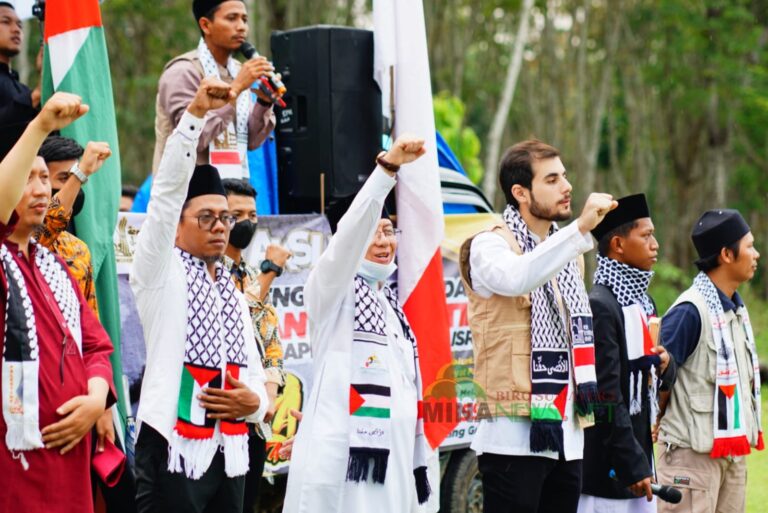


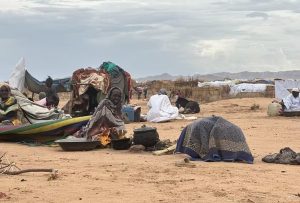
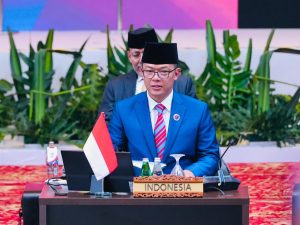



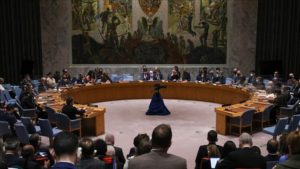
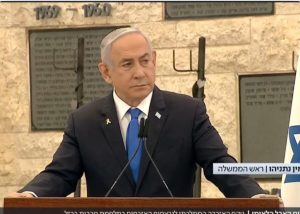
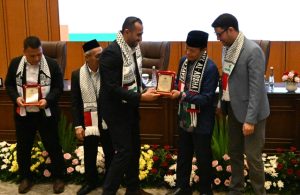
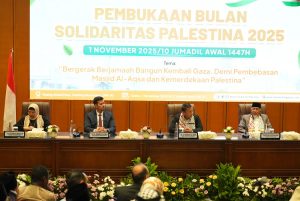
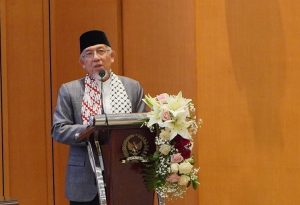
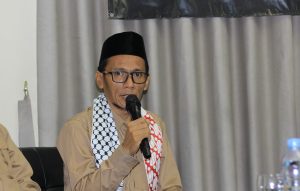












 Mina Indonesia
Mina Indonesia Mina Arabic
Mina Arabic